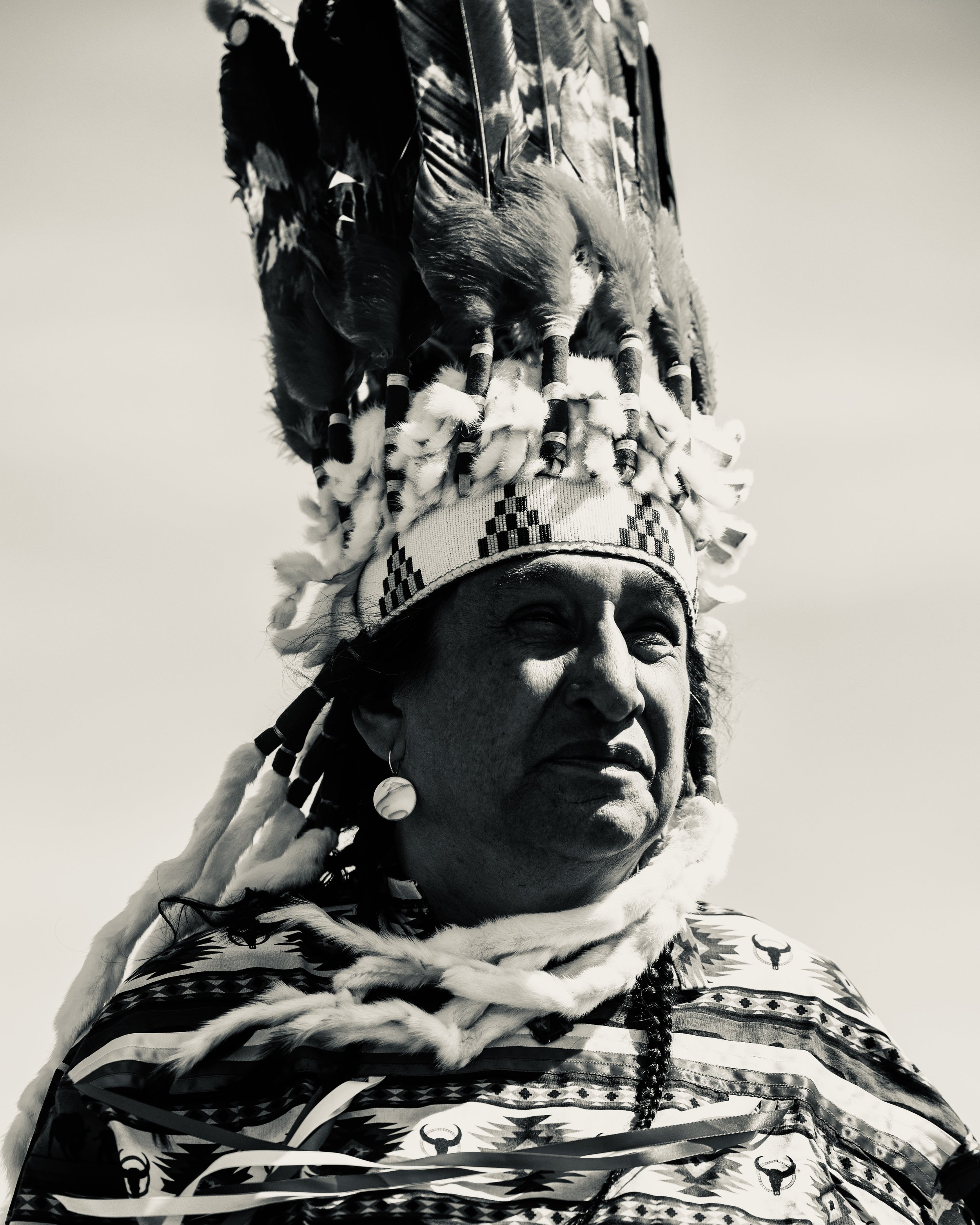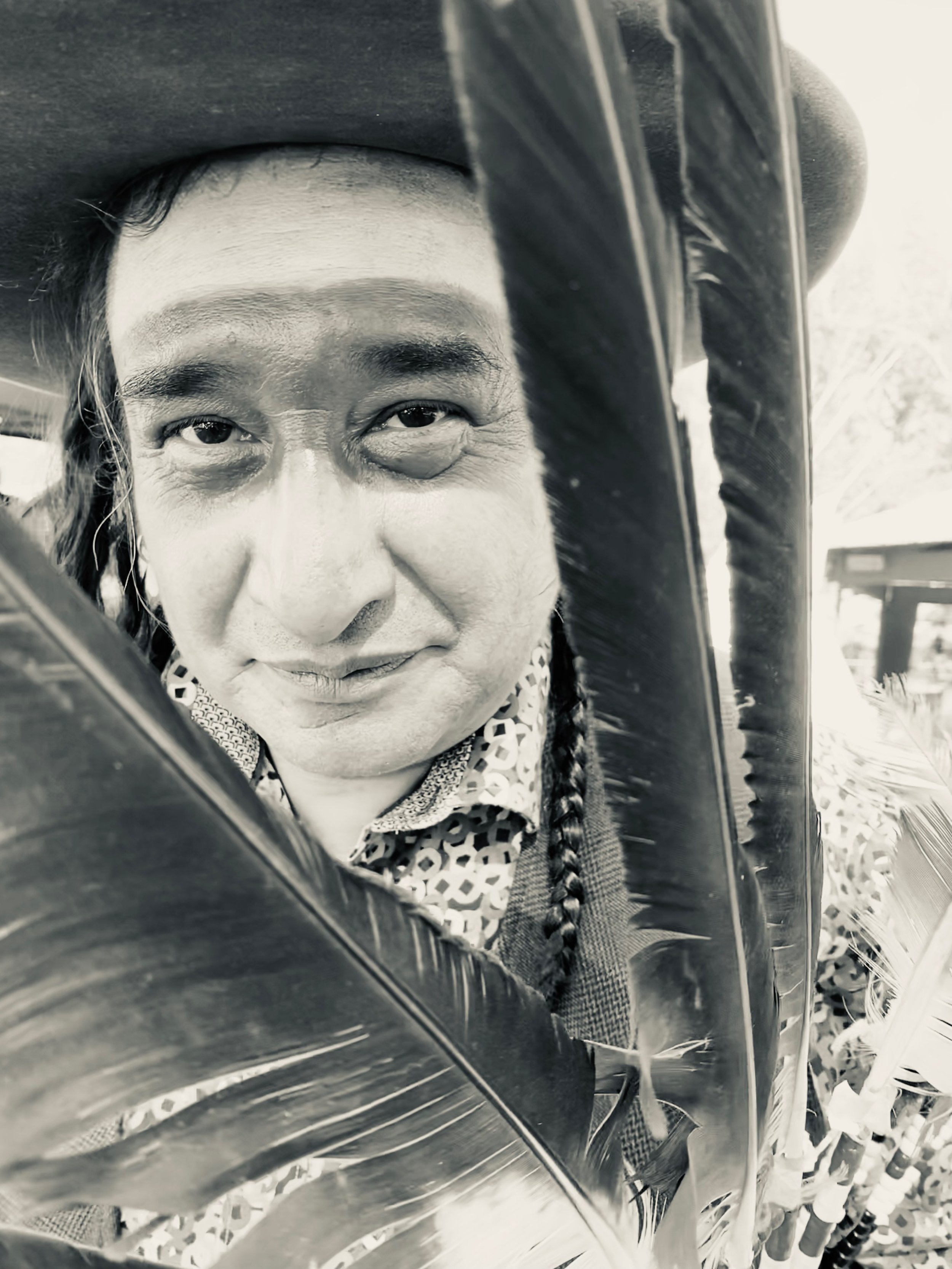Camille Pablo Russell
-
Native to the Kainai of Southern Alberta, Camille Pablo Russell, (es-pa-ko-me-kwan) aa’spahk’ko’mii’kwan “Shooting in the Air” is an award winning international speaker/storyteller, author, respected Blackfoot ceremonialist and cultural carrier.
Pablo has a remarkably broad historical and practical knowledge concerning the Prairie Indians' original way of life, and like his grandparents he is an excellent storyteller.
-
Native to the Kainai of Southern Alberta, Camille Pablo Russell, (es-pa-ko-me-kwan) aa’spahk’ko’mii’kwan “Shooting in the Air” is an award winning international speaker/storyteller, author, respected Blackfoot ceremonialist and cultural carrier.
Pablo grew up with his grandparents and was nourished in traditional ceremonial life. Nearly 40 years after joining the sundance as a young man, he continues to leads The Path of the Buffalo Sundance every summer. His gift of storytelling is vital to transfer teachings, for belonging and cultural preservation. Pablo has pledged his life in service to following these Old Ways, spreading deep and simple truths that cut through the modern haze for people all over the world.
-
Native to the Blackfoot Kainai/ Blood Tribe in Southern Alberta, Pablo grew up with his grandparents who lived a traditional life, where the oral tradition of sharing stories was vital to education, belonging and cultural preservation. Pablo has pledged his life in service to theses ways, spreading deep and simple truths that cut through the modern haze for people all over the world. Pablo has a remarkably broad historical and practical knowledge concerning the Prairie Indians' original way of life, and like his grandparents he is an excellent storyteller.
As a young man Pablo sundanced 11 years on "The Poor Man’s Sundance" lead by Morris Crow, Last Tail Feathers. He continued his apprenticeship in the sundance ways and later received the rights to run his own Sun Dance, "Path of the Buffalo Sundance” which is still held every summer in Southern Alberta.
In 1991, after a 76 year ceremonial ban, Pablo went to vision quest at Writing-On-Stone. It was there that the Buffalo came to Pablo in a powerful way and said to him “Go and teach my children to be like me.” This purpose in life has taken Pablo across the ocean spreading the message of the buffalo and its medicine of strength, perseverance, ownership and walking into life's challenges head-on.
Following the Buffalo from his vision quest, Pablo spent 18 years teaching in Europe before he came back home to help his people in a variety of roles including support worker for the Indian Residential School, IRS Elder with Treaty 7 Management Corp., spiritual counsellor at the Elbow River Healing Lodge, a unique Alberta Health Services facility dedicated to Indigenous people and a Native coordinator at the Calgary Remand Centre. “All healing, all thanks goes to the Creator. He doctors.” says Pablo.
Pablo has published a book titled "Path of the Buffalo Medicine Wheel”, in its 6th edition and translated into three languages. The Path of the Buffalo Medicine Wheel forms the foundation of his traditional wellness practice and teachings.
“When I was granted the role of leader in the Sundance, I continued to learn from the Sundance leaders about the “warrior ways”, as well as the “way of the holy pipe”. These teachings are the foundation for understanding the four parts of a human being and ways of centering. My leader followed our oral tradition in teaching the medicine wheel, but he put this knowledge onto a diagram, to support teaching the principles to modern thinking people. After learning for 13 years I was granted the right to teach on my own. My workshops are based on this, and other tools, which have helped many people to see things that they have to correct and take new directions, not only in their lives, but in their work, and to take the steps necessary to improve their quality of life.”
Pablo speaks on platforms in Canada and Europe on the topics of Mental Health, Personal Development, Community Wellness, Traditional Medicines, Healthy Family Systems and Leadership. He serve yearly as an Elder to the International Healers Congress in Munich, Germany. He has been awarded the David Crowchild Award for language and cultural preservation, amongst others and has won several grants to preserve and share his storytelling and oral tradition for the benefit of generations to come.






